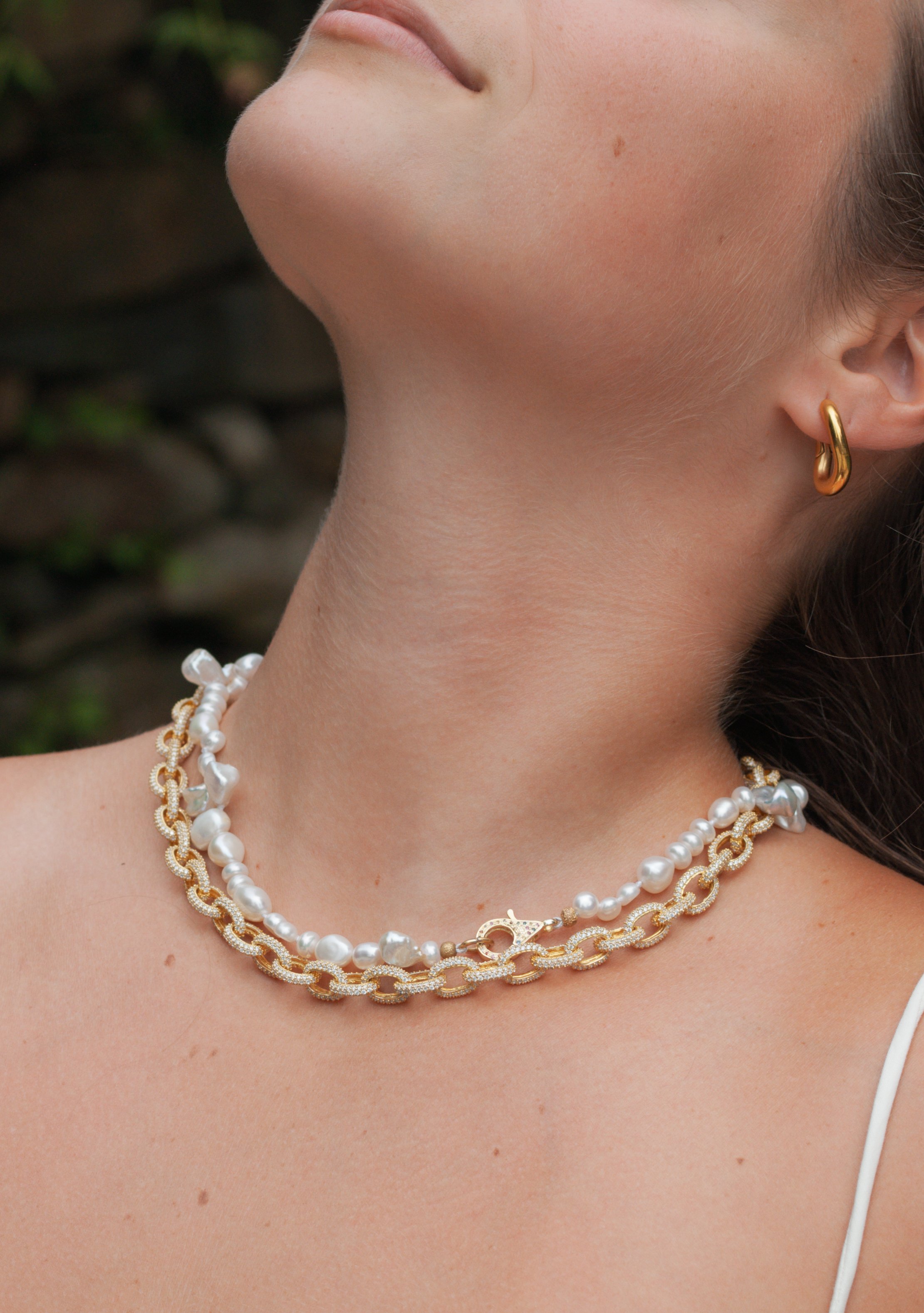
Frequently asked questions.
Can I wear my jewelry at the beach and in the ocean?
The salt in ocean water will corrode metals and leave them weakened and tarnished. Blue and rose gold are gold alloys - blue gold uses iron and rose gold uses copper - and are particularly sensitive to salt water. Iron and copper will corrode quickly in salt water.
Though our naked eyes may not see it, other metals will also experience corrosion. Solid gold, gold-filled, platinum and sterling silver jewelry are the best at handling salt water, but salt will still weaken thinner areas more quickly. Some of those more delicate areas include the solder points securing prongs for a gem setting. As the solder points grow weaker, the prongs loosen, and you may be at risk of losing stones.
Some stones are also sensitive to temperature changes and/or chemicals found in lotions, sunscreens, and sprays. (See our list below for more on that!)
Beach sand is also a jewelry-gobbling monster! If, for some reason, your jewelry drops into the sand or surf, it’s probably lost forever.
Can I wear my jewelry in the pool?
The chlorine found in swimming pools is incredibly damaging to gold jewelry, and will tarnish silver. Pure, 24kt gold is rarely made into jewelry because it is so soft. To add strength, gold is mixed with other metal alloys - different karats of gold are made with different amounts of gold. For example, 18kt gold is 18-parts gold and six-parts metal alloys. These metal alloys in gold are what can be easily damaged by chlorine.
Can I wear my pearls into the ocean or swimming pool?
Chlorine and other harmful chemicals in a pool can effect or cloud the lustre of a pearl and in some instances etch or pit the surface. Wearing a strand of pearls in water can also lead the silk thread they are strung with, to stretch.
Even though pearls come from the sea, sea water (any water, really) isn’t good for them. Salt water can damage a pearl’s lustre.
How should I clean jewelry that has stones in it?
Each stone has different sensitivities. We will be publishing a list soon of the various stones that we carry and the best practices to keep your jewelry clean..
What is Gold Plated?
Gold plating is a layer of gold applied to a base metal (brass, or sterling). The base is metal dipped in gold (there is no gold inside the piece).
What is Gold Vermeil?
Gold vermeil is genuine sterling silver that has been expertly plated with a thick layer of gold. The difference here is the base must be sterling silver. These pieces are great for individuals with sensitive skin or allergies to base metals.
What is Gold-Filled?
Gold filled jewelry has around 100% more gold than gold plated jewelry and a much higher tarnish resistance. It is made by bonding together gold and another base metal, so there is gold in the entire piece and not just an outside coating. It will not flake or change colors. Gold filled is a great (and economical) alternative to solid gold jewelry. This type of gold is easy to maintain and normally lasts a lifetime.
What is Solid Gold?
Solid gold is the highest in price and purity. Pure gold is actually too soft for everyday wear, so it is alloyed with a mixture of metals to give it strength and durability. Karatage indicates the purity of the gold, or how much of the metal is pure gold. For example, 18kt gold is 75% gold, 14kt gold is 58% gold.
How do I care for my Gold Plated Jewelry?
Try to keep it dry and away from skincare products. Take it off to shower, don’t wear it swimming, and avoid coming into contact with lotions and creams. When possible, store your gold plated jewelry in a plastic bag to help avoid moisture in the air.
How do I care for my Gold Vermeil Jewelry?
Same as for Gold Plated: Try to keep it dry and away from skincare products. Take it off to shower, don’t wear it swimming, and avoid coming into contact with lotions and creams. When possible, store your gold plated jewelry in a plastic bag to help avoid moisture in the air.
How do I care for Gold Filled jewelry?
You can get your gold-filled jewelry wet (assuming there are no stones in it) - but avoid salt water or chlorine. Basic lotions are fine, but remove your gold-filled jewelry when using harsher chemicals like retinol, peels, glycolic acid etc.
How do I care for Solid Gold jewelry?
Solid gold costs more but also needs less care. Keep your solid gold jewelry clean and safe. While solid gold can get wet and is durable, we still would recommend avoiding beaches, swimming pools, and harsh chemicals.
